Where I live, in the North, autumn comes early. I was out gathering blueberries and mushrooms when it came this year. Autumn is my favorite time of year, as it is for many people. Two years ago we did not have an autumn. Snow fell on the 25th of August and that was it. We had snow on the ground until May.
I was collecting mushrooms and berries—blueberries, as mentioned, but also grisbær, tyttebær, and the local prize, multer, or Cloudberries—because I like to eat them. I like being aware of them, too, the berries and the mushrooms both. A mistake with a mushroom can be very bad indeed, including the possibility of kidney and liver failure. But it’s not simply the mushrooms that are risky. A local once told me that if a fox urinates on a blueberry bush and you eat the berries, “that’s all,” he said. “Your kidneys will fail.” I have never felt particularly compelled to find out whether or not what he told me was a local suspicion or a medical fact. Nevertheless, I do like foxes, and so it’s a curious gamble to make with a curious animal.
Much comes together in a story about blueberry picking, foxes, and autumn. Consider that we pick berries in autumn, foxes thrive in their lovely rusty coats—a color not unlike our late season blueberry plants—and of course, as we human animals are aware, autumn is a time of passing. It is a time when the flora and much of the fauna take on the appearance and habits of knowing what’s coming. They realize, as we do, that the year is fading and that winter will be hard. There is nothing any of us can do or say about it, though we might try to linger a little more gracefully towards an end. Perhaps by doing so, regardless of how tentative we may feel, we are acknowledging a necessary conclusion. Autumn is what reminds us of what the conclusion will be. It is a passing, to use a word I am fond of.
Picking berries this August with autumn fresh and newly minted in unexpected sunshine, I thought of a friend of mine, a friend I had met in Moab years ago. Perhaps it was a decade ago now when I asked her what she had learned up to her particular point in life. It was a question I took seriously then. I respected (and continue to respect) her considerable experience. I admired what she had read and what she had tried to take in of the world. I wanted to know what her learning, reading, painting, meditating, gardening, staying in the world, so to speak, had taught her. She reminded me that she was still learning, reading, painting, and doing all of those things I had mention. But I made an effort to articulate what I hoped was center of my question, which was, to summon Hal David, what’s it all about? Except I was talking Laura in this case, and not Alfie. What she told me, I have been turning over ever since. She said precisely, “I have tried to live without harming things. I think I can say that. I have tried not to harm things.”
A short walk from our front door is where I pick berries and mushrooms. It is there, on a hillside above our house, where I can look out over a cold sea and see again a horizon filled with steep islands that often drip clouds and rain. Farther up the hill the ground levels somewhat before furrowing into a long valley. Going one direction through the valley, a person can walk to the sea again. Going another direction, a person can walk towards other mountains. From the point where the hill ends and where the valley begins, there are no houses, no buildings to be seen. But there is a village. If I walk far enough going north through the valley, I can see the village. The village once was cared for by families of farmers and fishermen. Traditionally here, families have made their livings and kept themselves fed with fishing and farming. A few of the families who live in the village continue to farm. I don’t know if anyone fishes commercially. The national government has made it difficult for small farmers and fisherman to make a living on a small scale. Regulations about farming and fishing are legislated to encourage large scale farming and fishing—that is to say, industrial farming and fishing.
Yet, rather than continue on a prickly road of politics that I have a limited understanding of, I remind myself of my father’s, Shakespeare’s, or Homer’s permeating wisdom, “Beauty does not lie there.” It does lie, however, in the village and in the mountains where we live. To the credit of our local government, the intention is to leave what is rural rural and leave what is agricultural agricultural. A farm or ranch, even those that are dilapidated, cannot be bought and turned into anything approaching a housing development. Essentially, undeveloped rural properties remain rural and consequently anyone is free to walk, picnic, camp or do as they wish on the property. The expectation is that no one will do any harm. And remarkably, no one does.
Our house sits on a half-acre of land carved out from a family farm in 1948, which is the year the house was built. The remaining acreage from the original farm is intact and large, and to my knowledge, should the owner of the farm ever wish to sell the land, he cannot subdivide the property. In fact, whoever would purchase the property, must, according to the current laws of our kommune, keep the property agricultural, which implies rural. The present owner of the property is not farmer. He is a mechanic. He tells me with pride that he keeps the original bill of sale from 1826 when his family purchased the property from the Church. As much as I appreciate living in a house with a history, I may appreciate more that I didn’t build it.
Years ago one of the many things I felt prophesying my departure from Moab was the number of houses being built. Did Moab actually have a housing crisis before people began building so many houses? Furthermore, was it a housing crisis in that there were no more houses or were there no more affordable houses? Affordable housing, to be clear, means housing for working people who can’t afford to build or purchase houses in places where wealthy people start to build or purchase houses. I’m not suggesting towns don’t need new houses. Obviously with growing populations everywhere people need places to live. But I am wondering if certain towns need so many new houses. Around 15 years ago I was part of a conversation that suggests something of what has happened in many rural communities in the west. At the time I was working on a horse ranch near Santa Fe, New Mexico. The ranch encompassed a gorgeous piece of property, and the main house on the property was stunning. It was a spacious adobe, custom built and pristine after the 40 years it had stood. I remember the kitchen particularly well. It was exquisite. There was a hand-welded stovetop and grill, hand-built cedar cabinets, and granite countertops. The owner, also the person for whom I worked, told me she was going to tear down the house. She and her husband were going to build a new house. They were planning to build three new houses on the property.
“Why?” I asked her. “Why tear down such a beautiful home?”
She shrugged, gave a quick glance at the house, and said, “It’s never really your own until you build it. Or in our case, until we have it built!”
“But it’s like a piece of art,” I said to her.
Again she shrugged. “You want it to be your own, you know?”
I guess I didn’t know.
For many of us, autumn is the season when we return to our moments of long ago and far away. On the Thursday when autumn came this year, I felt like something old and good had come back to me. The sunlight shone golden but tinted with a touch of late summer’s warmth. I was glad to be in the field and to feel the season change. The berries seemed to grow heavier before I could pick them. They were taking in these last days of sun, as most of us who live here will do. I stopped picking berries to look over the valley towards the mountains on the other side of the valley. I wanted to see if they, too, spoke of the season’s change. I wanted to see if any leaves had changed or if any snow had fallen on one of the peaks that I had not noticed.
Another memory.
I was never a good baseball player, but I tried to play baseball for Grand Country High School in my freshman and part of my sophomore year. I don’t know why really. I wasn’t a good player. I didn’t liked being around most of the boys on the team. Even so, for whatever peculiar teenage reason, I gave baseball a try. I mention that I played just part of my sophomore year. This is how it became just a part and how, mercifully, I never set foot on a competitive athletic field again. I was in the outfield, catching fly balls. It was part of practice. At some point, when I should have been looking for fly balls, I noticed how blue the sky was. It was utterly blue, the sort of blue sky one can only see in autumn. I followed this blue sky with my eyes all the way to La Sal mountains, where I could see the season shifting. There was a dash of new snow on the peaks, and below the peaks I could see Johnson Mesa. The rock below the mesa walled the mountain and the countryside with desert reds like some kind of miracle. There were no houses on the mesa or in the rim rock that I could see then, but I thought about some of the people I liked and none of them were in school. They were out somewhere. They were grown-ups. Then I wondered why I was on a baseball field. The La Sal mountains and the desert were full of hush and secrets. Practice wasn’t over, but I started for home anyway.
Damon Falke’s most recent work, Now at the Uncertain Hour, received a grant from the New York
Council on the Humanities and subsequent performance in upstate New York. His work has appeared
on the Reflections West radio program and in numerous literary journals. His recent novella, By Way
of Passing, is published by Shechem Press. He lives abroad.
To read the PDF version of this article, click here.
To comment, scroll to the bottom of the page.
Don’t forget the Zephyr ads! All links are hot!

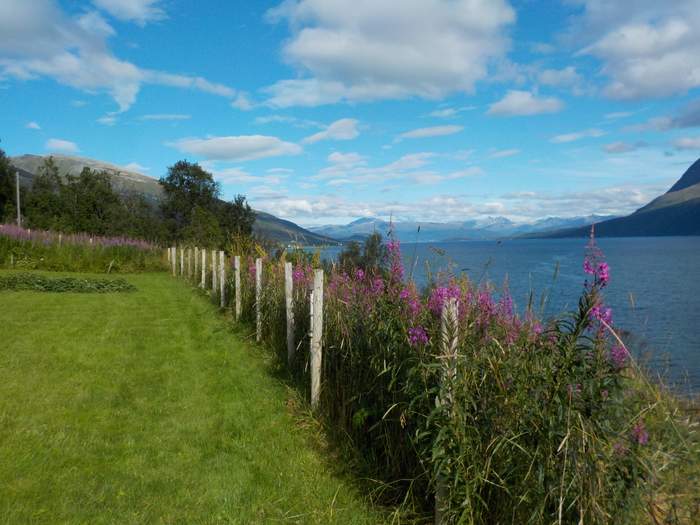


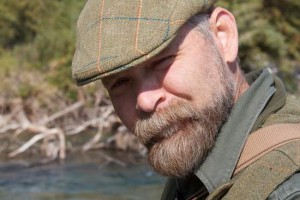
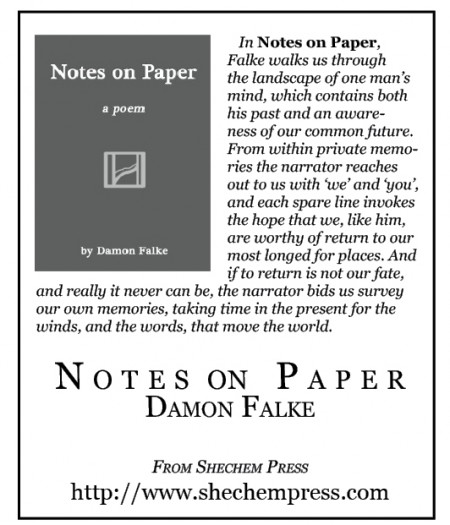
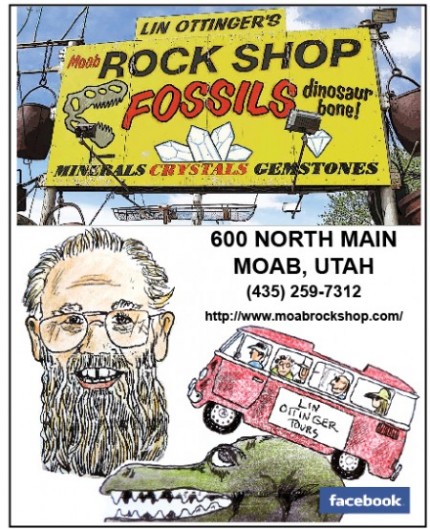



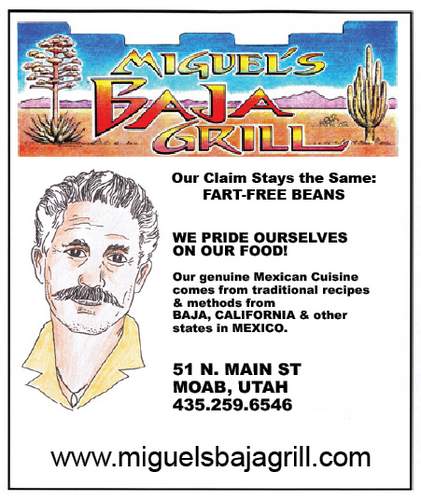

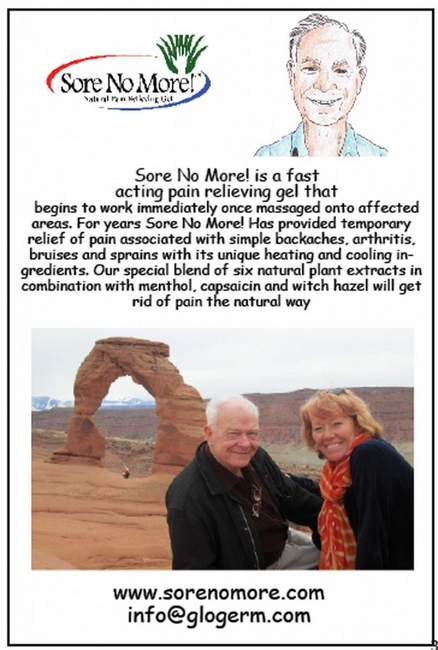
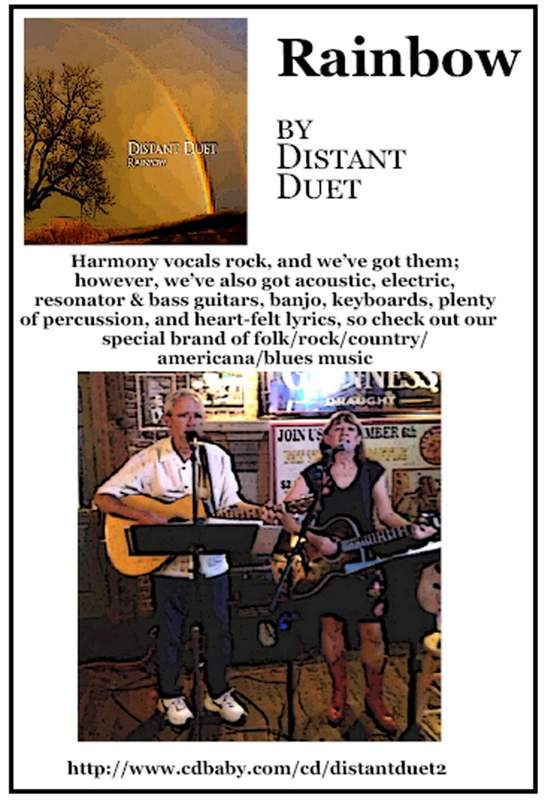
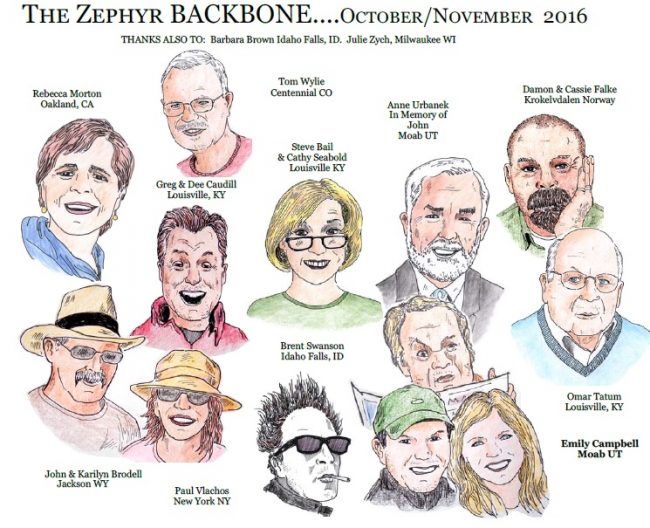
Great piece Damon!…makes my mind wonder to those distant mountains that I’ve spent so many falls in.